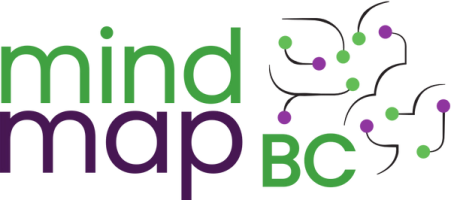Queer and Trans Postpartum Support Group
Summary
No matter how your baby comes to you, if you are 2SLGBTQIA+ and are experiencing mental health challenges during your pregnancy, postpartum, or during your adoption or surrogacy journey, support is available to you and your family.
This confidential peer support group is led by a queer facilitator who is trained in perinatal mood disorders including postpartum depression and anxiety. If you have a baby 18 months or younger and would like to join us, please contact emily@postpartum.org
Want to learn more about this service’s work with Two-Spirit, trans, LGBQ+ people?
We invite all service providers listed on MindMapBC to answer the following questions. These questions were developed in collaboration with community members, researchers, and mental health and other service providers. They're intended to help us understand what a service provider or organization is doing to affirm and support sexual and gender diverse service users.
See below for responses for this listing.
Want to learn more about our screening questions and filters?
Do you collect and use preferred names (rather than legal names) for all communications?
—Yes
We do not require any identifying information. Preferred names are always welcome and folks are welcome to access support anonymously.
Are the forms used in your practice inclusive of various sexual orientations and gender identities (e.g., opportunities to fill in pronouns, etc.)?
—N/A
We do not require participants to complete any forms.
Do you and your colleagues ask about pronouns and use them appropriately?
—Yes
Are you and your colleagues aware of what specific barriers may exist for trans individuals accessing your services?
—Yes, to some extent
Staff have varying levels of trans cultural competence and safety. However all staff have basic skills, knowledge and practices that ensure inclusion and we have some specific staff who have high skill levels and we make sure two-spirit, trans, non-binary, and gender variant folks access care from these staff members.
Are you and your colleagues aware of what specific barriers may exist for Two-Spirit individuals accessing your services?
—Yes, to some extent
We are very aware of the barriers. We have an organizational commitment to implementing practices that will mitigate or eliminate these barriers. It is part of our long and short term strategic planning. However, our focus has been on internal training and development and our public faces has not yet changed.
Do you offer Indigenous 2S/LGBTQ+ specific resources, for example Indigenous Elders or Knowledge Keepers?
—No
Not yet. We are currently developing a pilot program specifically run by and for Indigenous folks who are struggling with perinatal mental health. We are also building and strengthening community relationships with Indigenous run organizations as a way to build integrated systems of care. We hope to engage Indigenous Elders soon, however there is no specific plan as of now.
Are you and your colleagues comfortable asking relevant questions about gender identity and sexual orientation?
—Yes
Are you and your colleagues aware of what specific barriers may exist for LGBQ individuals accessing your services?
—Yes
Can you and your colleagues distinguish gender/identity dysphoria/distress from mental health conditions?
—Yes, to some extent
We run on a peer support model rather than a clinical one, so it would be out of scope for us to make these distinctions. We work with parents in any kind of postpartum distress. We recognize that gender/identity dysphoria/distress can contribute to PMADS and are able to offer support and also help our clients access specific care for GID.
Does your practice have gender-neutral washrooms?
—Not applicable
We offer support over the telephone and our support groups are run online so this questions is not currently applicable.
Are there clear anti-discrimination policies that include gender identity, gender expression, and sexual orientation in your organization or practice?
—Yes, to some extent
Our anti-discrimination polices are rather general, however supporting all genders, including: gender identity, expression and sexual orientation have all been identified as an organizational priority and our work over the last 2 years has shown a visible commitment to this.
Are all individuals involved in service provision actively engaged in decolonizing their practices and/or organization? If yes, please type below what actions you and/or your organization are taking.
—Yes
Pacific Post Partum Support Society is committed to EDI on all levels of the organization. Anti-oppressive practices, including decolonizing, and shifting our practices to be anti-racist has been identified as a priority in our short and long term strategic plan. We are looking at our hiring practice to ensure that we hire QTIBIPOC folks and staff from other marginalised communities. We are doing ongoing staff training, like San'yas Indigenous Cultural Safety training, we are engaging with community organizations who have been doing this work for decades to ensure we have culturally safe places to refer clients to. In addition to this we have developed paid internship programs to facilitate reciprocal learning opportunities with Indigenous parents.
Are all individuals involved in service provision actively engaged in anti-racist practices, policies, and systems in their care model?
—Yes, to some extent
Please see answer above.
Last updated: January 11, 2022
Request changes —

